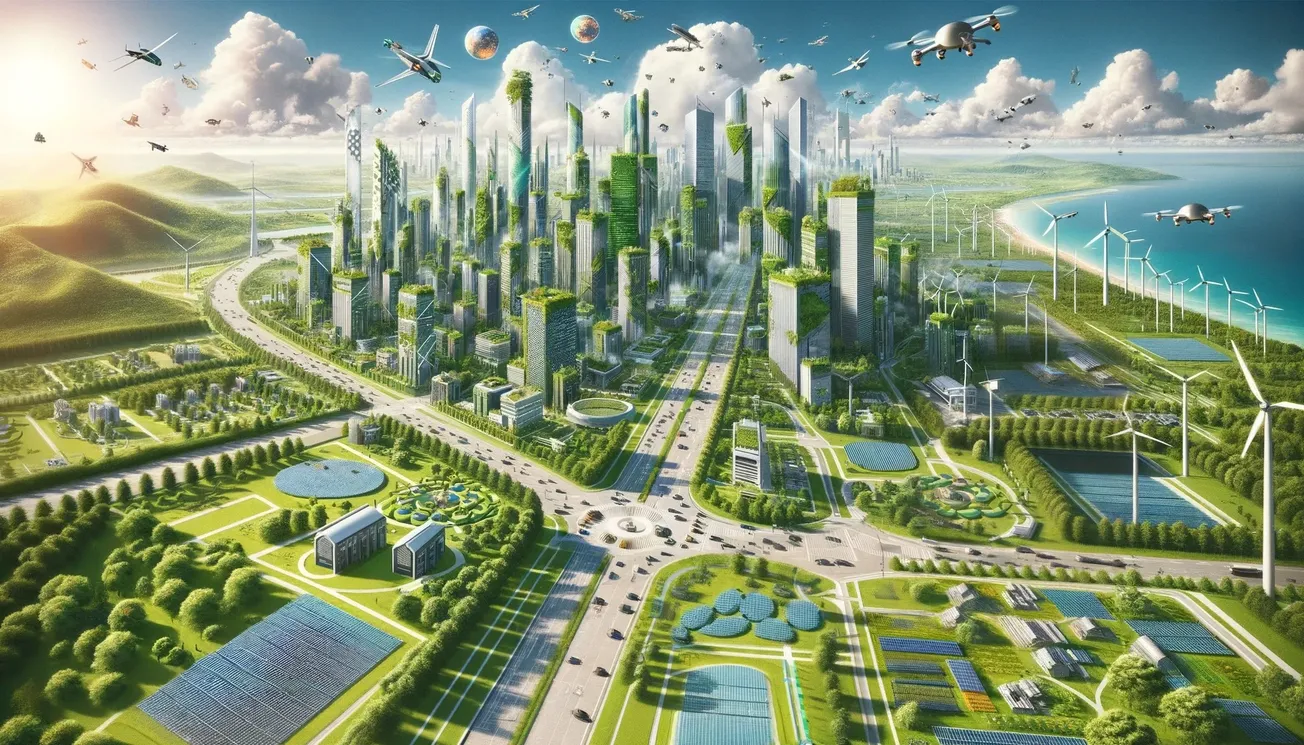Table of Contents
In October of last year, investor and businessman Marc Andreessen published his “Techno-Optimist Manifesto,” a document celebrating technological development and abundance that garnered a mixed reception across tech, media, and business circles. Some viewed his embrace of no-holds-barred innovation as reckless disregard for the dangers of technology, while others saw it as the only option to advance humanity. Six months later, his call to action inspires many in Silicon Valley and feels more relevant than ever.
At its core, techno-optimism is the idea that technological progress should be expedited as much as possible. Andreessen explains that, regardless of the downsides, advancements in medical, agricultural, and web technologies are inextricable from the overall advancement of humanity. He asserts that society has been lied to, fooled into becoming tech pessimists who are “miserable about the future.” The truth, Andreessen preaches, is that our civilization is built on technology. We have all the tools (intelligence, energy, abundance) to accelerate our world and create “not utopia, but close enough.”
Andreessen argues that “technology is the glory of human ambition and achievement, the spearhead of progress, and the realization of our potential." From the agricultural revolution to modern medicine and computing, innovation has been the key to overcoming age-old scourges of poverty, hunger, and disease. Just three decades ago, for example, the life expectancy of someone with Cystic Fibrosis was only 30 years. Today, someone with CF can expect to live to 50 years, with some living to 80. Given the significant problems society faces, the manifesto declares that continuing to push the boundaries of technology is an ethical imperative.
The techno-optimist manifesto inspires with its vision of innovation as the fuel of human flourishing. Andreesen is undeniably correct that the rapid pace of innovation, especially in domains like artificial intelligence and bioengineering, holds immense potential to solve humanity's most significant challenges. However, the concerns about such utopian thinking voiced by decelerationist thinkers such as Roots of Progress founder Jason Crawford, OpenAI Superalignment team member Leopold Aschenbrenner, and Works in Progress founder Nick Whitaker demand serious engagement if we are to realize technology's benefits safely.
Crawford writes that, if we want to build a fantastic future, "we're going to need more than vibes. We're going to need ideas. A framework. A philosophy. And we're going to need just a bit of nuance." Specifically, we need to take potential risks and downsides seriously—not just write a grandstanding manifesto. While the benefits of innovation will likely outweigh the costs, Crawford argues, “Safety is a part of progress, not something opposed to it… Safety is an achievement, something actively created through a combination of engineering excellence and sound governance.”
In other words, we must recognize the dangers of moving too fast.
Caution is especially needed in the case of artificial intelligence, where many leading technologists worry we are not on track to achieve robust enough control of advanced systems. Leopold Aschenbrenner argues that artificial intelligence could effectively become "the most powerful weapon man has ever created." Therefore, engineers and technologists must prioritize the reliable command of AI systems as they become increasingly capable. Aschenbrenner calls for an "Operation Warp Speed for scalable alignment,” or a surge of technical research to ensure AI remains controllable and beneficial to humans, even at the superhuman level.
Simultaneously, Aschenbrenner rejects crude proposals to place indefinite moratoriums on AI development. He and the Progress Forum explore the "effective accelerationist" movement, abbreviated as e/acc, that champions these issues. E/acc has emerged as a counter to so-called “doomers” and general techno-pessimism, and Andreessen is the movement’s patron saint.
While the appeal of his "full speed ahead!" energy is understandable—even contagious—technologists must be careful not to naively ignore appropriate caution. After all, Andreessen does not advocate for an unquestioning and unbridled optimism; he understands the need for comprehensive, open engagement with complex issues. With this mindset, we can have our artificial intelligence cake and eat it, too.
Silicon Valley should embrace a simple, if not profound, tenet: You can’t fight the future, but you also shouldn’t run toward it blindly. Technological progress is coming one way or another. Ethical technologists must embrace the work of managing—not halting—this progress, lest they risk ceding the field to untrustworthy or malevolent actors.
On the whole, Marc Andreessen’s vision is worth fighting for. Human ingenuity, enabled by high-functioning institutions and guided by humanistic values, remains our best bet for creating the bright future we hope to foster. It won't be easy, of course, but nothing worth doing is. We can thread the proverbial needle if we fuse the ambitious spirit of techno-optimists with the mindfulness urged by their critics, thereby achieving a sustainable and flourishing world.









